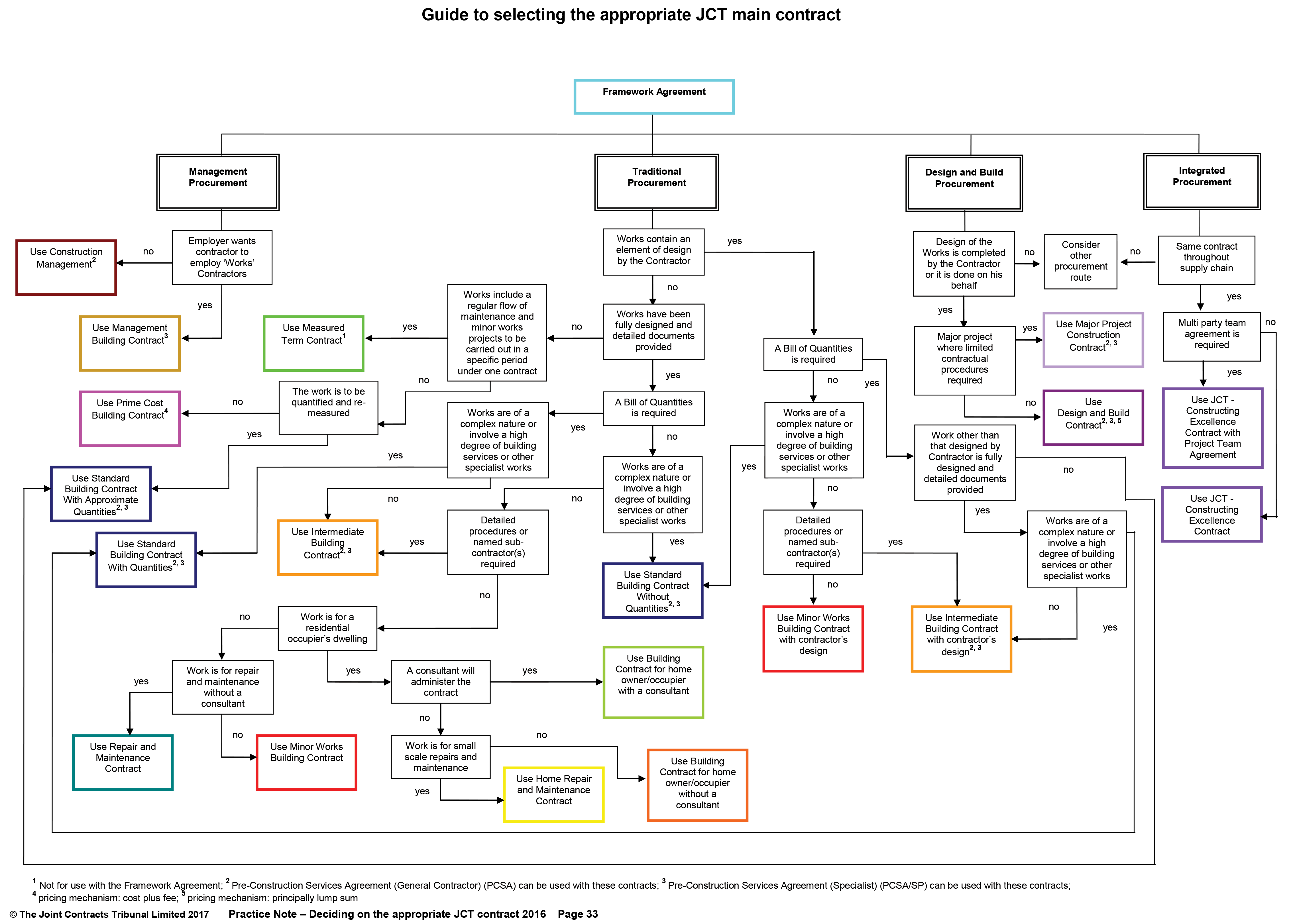What is a JCT Contract?
The Joint Contracts Tribunal (JCT) publishes a suite of building contracts that are commonly used in the construction industry to form formal, clear and legally binding contracts.
Construction work is usually carried out under contract, which establishes the rights, duties and liabilities of each party, including who has responsibility to insure the contract works, existing structures and associated covers.
JCT contracts and their provisions
The majority of JCT form contracts follow the standard format of:
- Articles of Agreement
- Contract Particulars (where the parties set out project-specific information)
- Conditions of Contract; and
- Schedules (which can be added into the contract if desired)
The Conditions are then typically divided into the following main sections:
- Definitions
- Carrying out the works
- Control of the works
- Payment
- Variations
- Injury, damage and insurance
- Assignment, third party rights and collateral warranties
- Termination
- Settlement of disputes
The JCT produce a range of contracts from those designed for use on simple home extensions, right through to contract forms suitable for more complex projects.
The Standard JCT Contract
The Standard JCT Contract is drafted to suit larger works, or works of a complex nature that involve a high degree of building services or specialist work and it is drafted to include provisions allowing:
- for the contractor to design parts of the works
- works to be carried out in sections and phases
- for relevant specialists to be named in the contract
The Standard JCT Contract provides for the works to be designed or detailed on behalf of the employer, and for the employer to provide drawings and documentation to define the scope and quality of the works. The standard JCT contract is also available in several variations depending on whether the contract is to be a lump sum or is subject to remeasurement.
The standard form is typically seen on large complex commercial construction projects, particularly where specification and design are important factors for the employer.
The JCT Design and Build Contract
The JCT Design and Build Contract is drafted to suit projects where the contractor is to be responsible for both completing the design of the works and the construction of the works. In such instances the employer will provide detailed information to the contractor, known as the employer’s requirements and the contractor is paid a lump sum price to complete the detailed design and construction of the employer’s requirements.
This form of contract is very popular due to its single point of design responsibility, which means that if a defect is found the employer need only pursue the contractor rather than ascertain whether it arises from faulty workmanship or the design of one of the various consultants.
The Design and Build Contract is typically seen on a wide range of commercial projects, particularly where certainty of cost and speed of construction are important factors for the employer.
The JCT Minor Works Contract
The JCT Minor Works Contract is drafted to suit projects where:
- the work involved is simple in character;
- the work is designed by or on behalf of the Employer;
- the Employer is to provide drawings and/or a specification and/or work schedules to define adequately the quantity and quality of the work; and
an architect/contract administrator is to oversee the conditions.
There is also a version of the Minor Works Contract which contains provisions for the Contractor to design part of the works. The Minor Works forms are typically seen on small simple commercial projects.
Which JCT contract should I choose?
A key question that is often asked is which form of JCT contract should I choose for my project. The answer will depend upon the nature of the project and the most suitable procurement route for that project, taking into account project deliverables as to time, cost and quality. A further factor to then consider is whether the conditions within the standard suites should be amended to suit the specific needs of your project.
Procurement, contract selection and drafting contract amendments are an important task, as the resulting contract will define the parties’ roles, rights, and obligations for the project. Getting this wrong can have a significant negative impact on the project or one or more parties.
Contract amendments
Any amendments to the contract should be checked closely as they can alter your rights and become onerous contracts. Onerous points to be aware of include bespoke or amended payment provisions, defects and retention, set-off clauses, design responsibility, extension of time, loss and expense, condition precedent, acceleration, supplementation, and contract termination. Our advice guide on onerous construction contracts explains how to deal with these provisions.
Insurance Requirements
There are insurance requirements as follows:-
- The customer must tell their insurers that work is to be done at the premises. If the current home insurers cannot provide cover, then an appropriate buildings insurance policy must be put in place by the customer for the duration of the renovation work.
- The contractor must have an “all risks” insurance policy to cover which is suitable to cover the full costs of damage to the building works and any unfixed materials being used in connection with the work.
The contractor must have a public liability policy which covers death or injury to people and damage to property arising from the building work.
It is important to have the right cover in place so that if an accident does occur onsite insurers will settle the claim. Therefore, it is critical to take appropriate advice before entering into any form of building contract. The implications of entering into a contract that does not properly document your intent can lead to you taking on more risk and responsibility than you intended. This in turn can be catastrophic if an issue arises on the project. Many construction disputes can be mitigated by ensuring that the construction contracts are properly prepared and understood prior to commencement.

